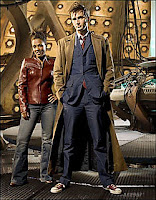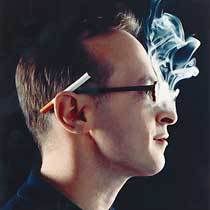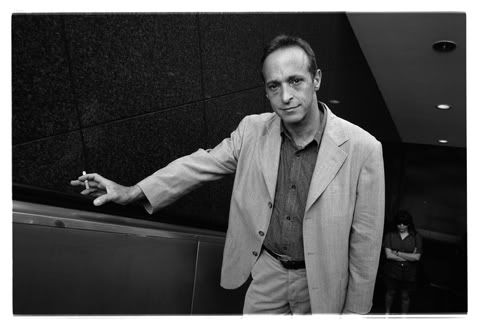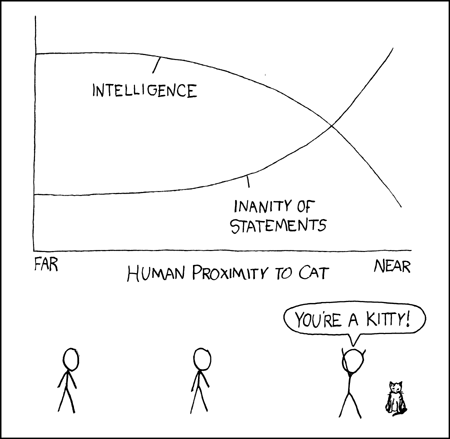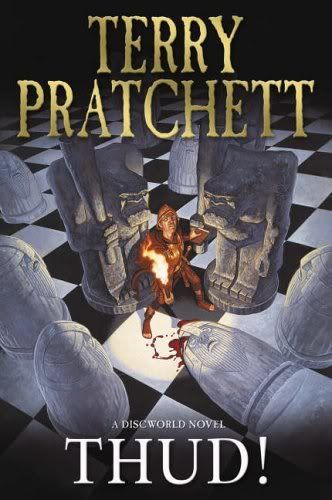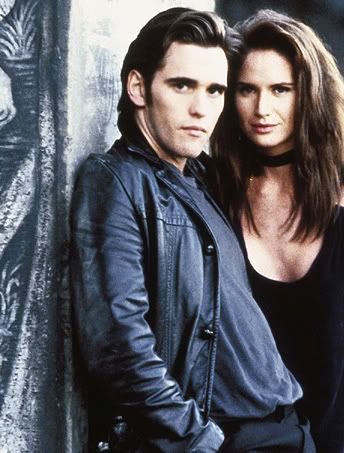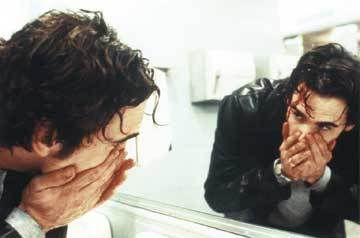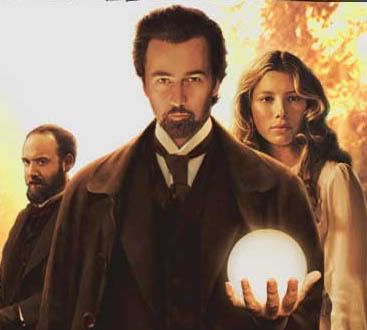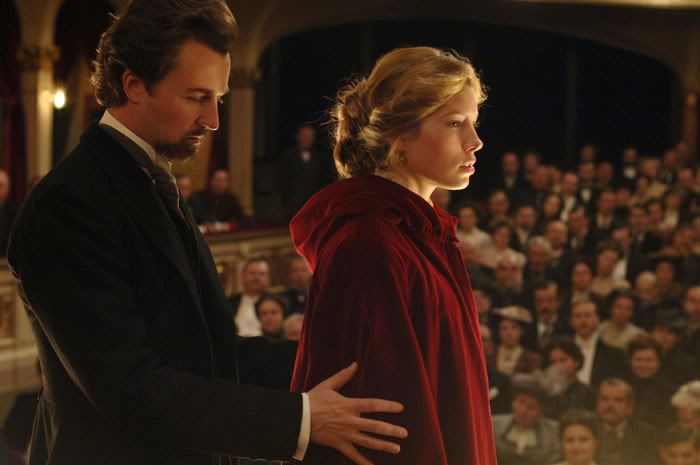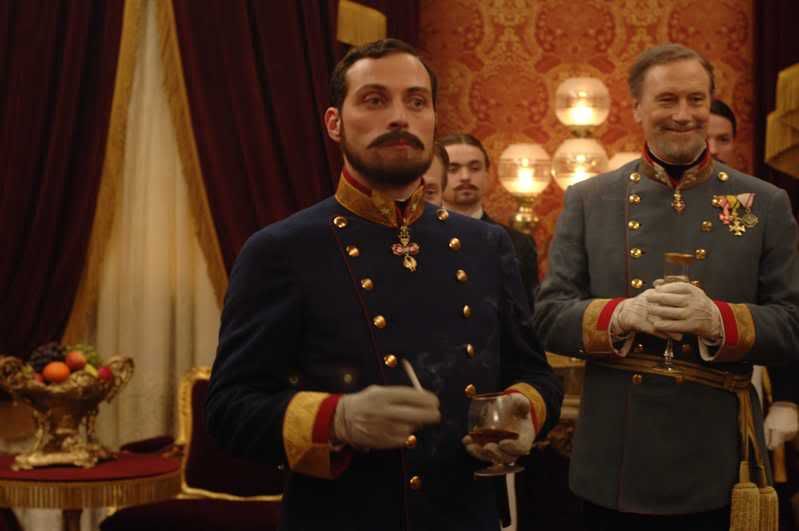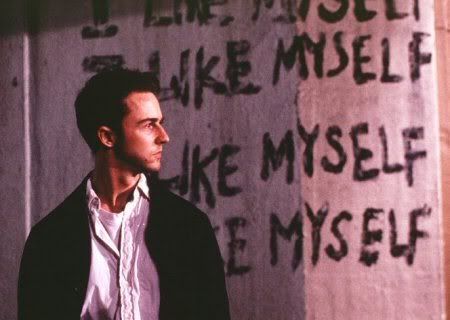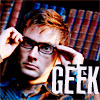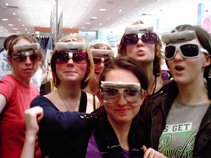8: Human Nature (Part One)
Preliminary thoughts:
- Only 13 episodes?!? Ah, crap.
- Episode Two had better not be a sub-Da Vinci Code thing. I'm warning ye, do not do that to the Bard! *shakes fist*
- Could Episode Seven be a Douglas Adams reference? Wow, I'd love if Marvin the Paranoid Android had a guest spot.
- And then that last one. "Last of the Time Lords?" Sounds a wee bit ominous. I guess the fact that David Tennant has signed up for series 4 dispells any worries I have in that respect, anyhow.
So don't forget! Doctor Who, BBC, 7pm, tomorrow. Be there - or be a Dalek-y type square.
Now;
"They used to hang men at Four Turnings in the old days. Not any more though..."
Daphne du Maurier doesn't get enough credit. As regards mystery or horror writers, she seems to be left in the dust of the big boys; and when it comes to to talent of crafting a perfectly poised opening sentence, she is almost completely forgotten. It's a shame, because the opening line of My Cousin Rachel is about as perfect as you can get - it's mysterious, elegantly phrased, memorable and becomes significant later on in the story. Along with her famous "Last night I dreamt I went to Manderly again..." in Rebecca, du Maurier has got this art to down to a tee.
I didn't actually mean to start reading this book. It's just that on Monday I found myself sitting in a double free class with no homework, study or book at my disposal. I excused myself to the school's pitifully-stocked library;amid the Boyzone annuals and dusty history tomes I came across this battered Daphne du Maurier paperback and decided it would do to fill my time neatly until the bell rang for home. 80 minutes later I was deeply engrossed in the story, despite myself. I had forgotten how good du Maurier is; when I think of my favourite writers I always seem to leave her out, although I've loved Jamaica Inn, Rebecca and of course, Don't Look Now. She has a knack for creating deceptivly simple stories that chill me right to the bone. In everything I've read by her there's been a moment which has deeply disturbed me, in the best way possible. When I first read Don't Look Now, it was quite late at night and when I reached the ending (that ending...) I actually threw my copy across the room in horror and shock and revulsion. And if a writer can elict that kind of visceral response from me, I know she's a keeper.
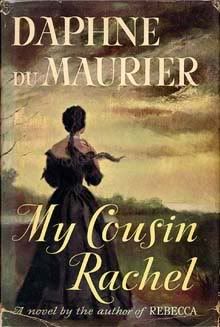 I'll give a quick rundown of the plot. Philip Ashley is a headstrong young man in his early-20s. He grew up in the care and company of his older cousin, Ambrose - a gleefully playful and devoted relative whom the young Philip always admired. They live together in a sort of 19th century bachelor pad and their lifestyle is easy and fun, until Ambrose becomes ill and travels to Europe to regain his health. Philip begins to recieve letters from his cousin, letters describing his health, daily life in Europe and eventually, mentions of a woman always referred to as "my cousin Rachel". It transpires that this woman is a distant relative and Ambrose becomes infatuated with her. The next thing Philip hears is that they have wed and are living together in Italy. Slightly annoyed at this turn of events, Philip manages to carry on in the house by himself - until he begins to recieve letters of a different tone. Ambrose sounds unhappy, but before anything concrete can be determined, the letters stop. Almost a year later, Philip recieves a few letters from his cousin that seem to have been written by a man on the brink of madness. Shortly afterwards, Ambrose dies from a mysterious illness.
I'll give a quick rundown of the plot. Philip Ashley is a headstrong young man in his early-20s. He grew up in the care and company of his older cousin, Ambrose - a gleefully playful and devoted relative whom the young Philip always admired. They live together in a sort of 19th century bachelor pad and their lifestyle is easy and fun, until Ambrose becomes ill and travels to Europe to regain his health. Philip begins to recieve letters from his cousin, letters describing his health, daily life in Europe and eventually, mentions of a woman always referred to as "my cousin Rachel". It transpires that this woman is a distant relative and Ambrose becomes infatuated with her. The next thing Philip hears is that they have wed and are living together in Italy. Slightly annoyed at this turn of events, Philip manages to carry on in the house by himself - until he begins to recieve letters of a different tone. Ambrose sounds unhappy, but before anything concrete can be determined, the letters stop. Almost a year later, Philip recieves a few letters from his cousin that seem to have been written by a man on the brink of madness. Shortly afterwards, Ambrose dies from a mysterious illness.When his widow, the mysterious Rachel, arrives in Cornwall, she is quite unlike the woman Philip has been imagining,hating and privatey blaming for the death of his cousin all this time. She moves into his house, and Philip soon becomes infatuated with her...
The ending is typically ambiguous, which is ultimatly more satisfying than a clear-cut answer would be. The narrative seems simple, at times I was feeling all the emotions that Philip was, but at others I was this close to yelling at the page "No, you fool!" At times I really wanted to shake him, which added to the tension simmering all the way through this short novel.
In short: Gripping, intriguing and with an ending that will leave you trying to puzzle it all out, My Cousin Rachel is an oft-forgotten masterpiece by a talented (and neglected) writer.
====
Prague on Sunday! Kafka-land, here I come!
